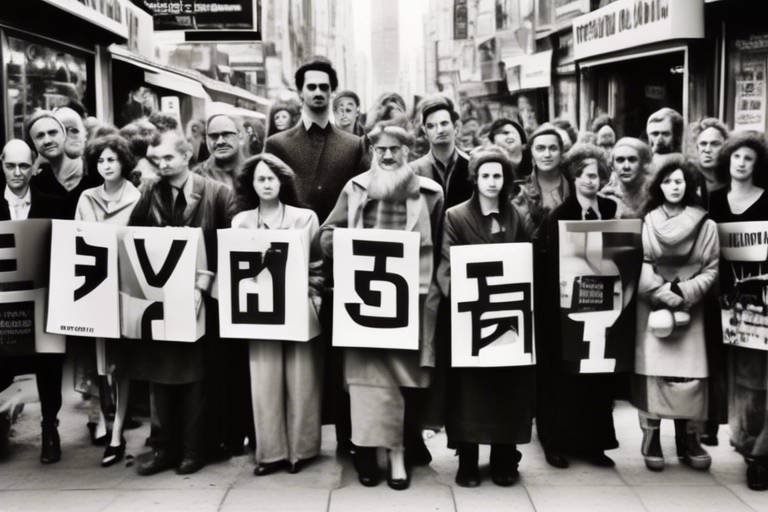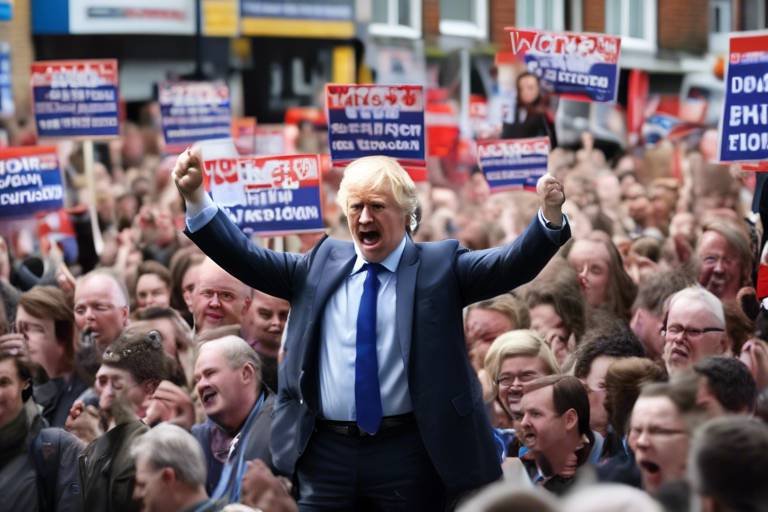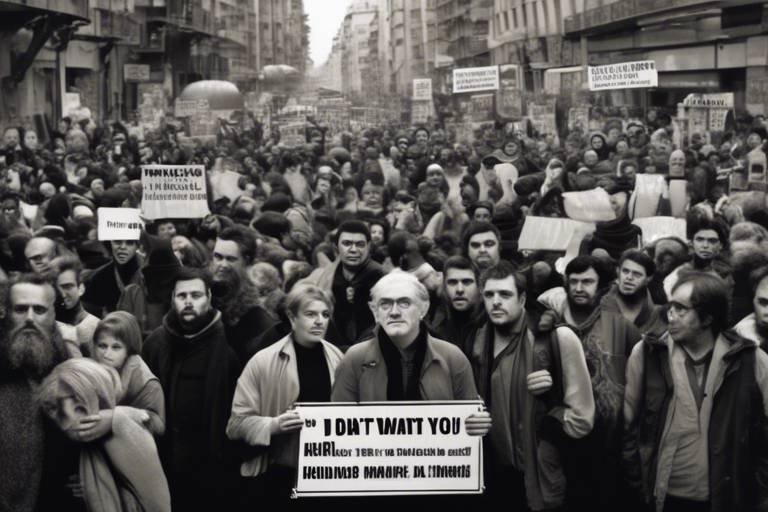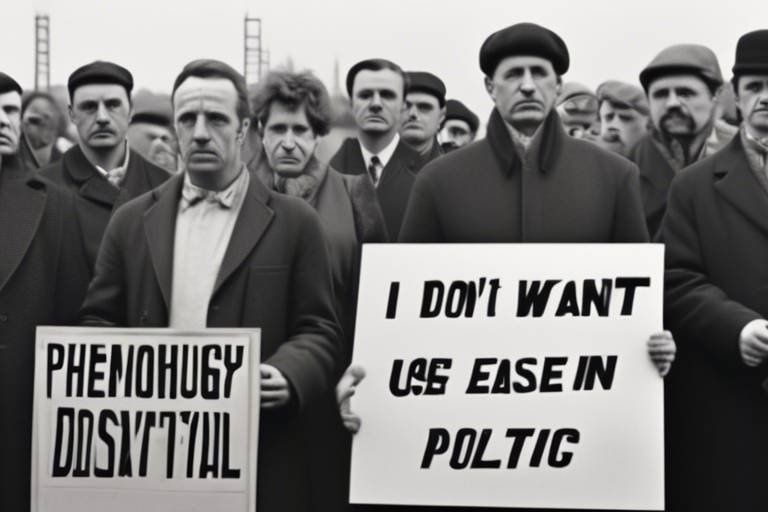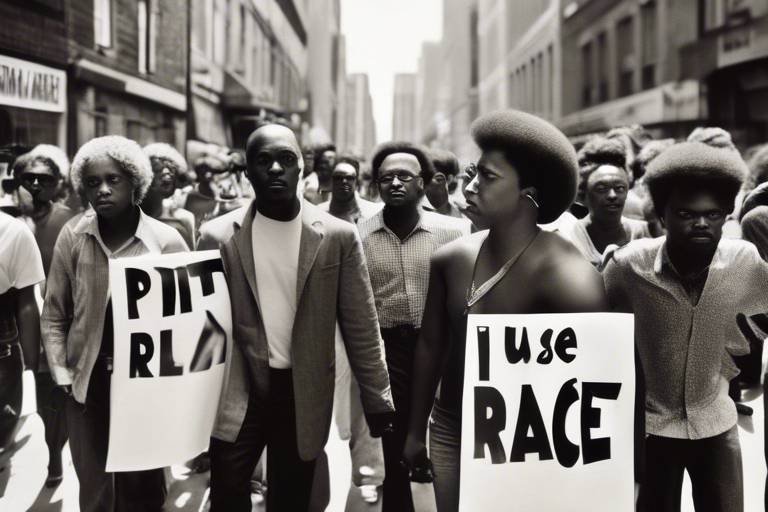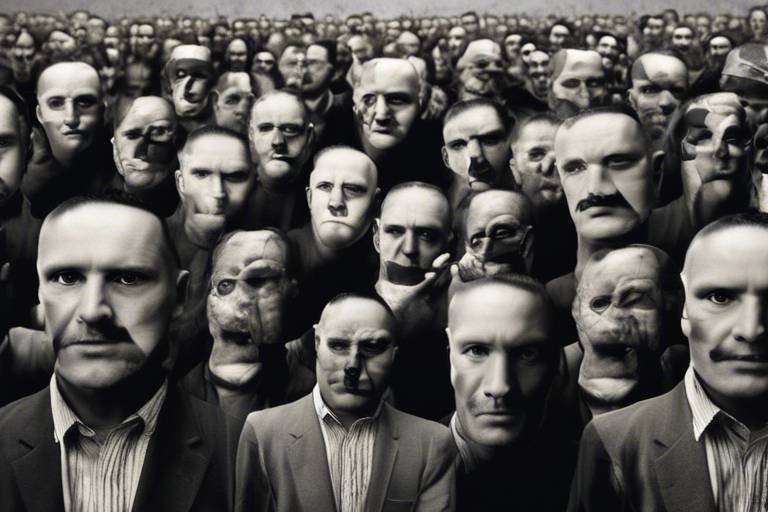The Philosophy of Justice and its Political Applications
This article explores the foundational concepts of justice, its philosophical underpinnings, and how these ideas manifest in political systems, influencing laws and societal norms. Justice isn't just a lofty ideal; it's the bedrock of our societies, shaping everything from legislation to everyday interactions. Imagine a world where fairness reigns supreme—where everyone gets what they deserve, and societal norms reflect a deep understanding of moral righteousness. Sounds idyllic, right? Yet, the journey to achieving this ideal is fraught with complexities and contradictions.
Justice is a multifaceted concept that encompasses fairness, equality, and moral righteousness. Historically, justice has evolved through various cultural lenses, each offering unique interpretations. From ancient civilizations that emphasized retribution to modern democratic ideals advocating for equality, the notion of justice has transformed significantly. For instance, in many Eastern philosophies, justice often intertwines with concepts of harmony and balance, while Western thought tends to focus on individual rights and legalistic frameworks. This divergence raises important questions: What does justice truly mean? Is it a universal principle, or is it shaped by the cultural and societal contexts in which it exists?
Different philosophical theories provide frameworks for understanding justice. Among these, utilitarianism, deontology, and virtue ethics stand out as key players. Each theory offers distinct perspectives on how justice should be defined and implemented in society. For example, utilitarianism advocates for actions that maximize overall happiness, while deontology emphasizes the importance of duties and rights, regardless of the outcomes. This leads us to ponder: How do these competing theories influence our political thought and action? The implications are profound, as they shape not only laws but also societal norms and expectations.
Utilitarianism posits that the best action is one that maximizes overall happiness. This principle significantly shapes policies and ethical dilemmas in governance and public welfare. Think about it—when policymakers consider new laws, they often weigh the potential benefits against the harms. For instance, a government might justify a controversial policy by arguing that it benefits the majority, even if it marginalizes a minority group. This raises ethical questions: Is it ever justifiable to sacrifice the well-being of a few for the happiness of the many? The debate continues to ignite tensions in contemporary discussions about justice.
While utilitarianism promotes general welfare, it faces criticism for potentially justifying harmful actions against minorities. Critics argue that this approach can lead to a "tyranny of the majority," where the rights of individuals are overlooked in favor of collective happiness. This critique is particularly relevant in contemporary justice debates, where the balance between majority rule and minority rights remains a contentious issue. How do we ensure that justice is not only about the greatest good but also about protecting the vulnerable? These questions challenge us to rethink our ethical frameworks.
Utilitarian principles are often applied in legislative processes and public policy. For example, consider the implementation of healthcare policies that aim to provide the greatest benefit to the largest number of people. In this context, decision-makers might prioritize funding for treatments that offer the most significant overall improvement in public health, even if it means deprioritizing less common conditions. Such real-world applications illustrate how utilitarianism influences decision-making in government, prompting us to reflect on the ethical dimensions of these choices.
Deontological ethics emphasizes duties and rights over consequences. This perspective informs legal frameworks and moral responsibilities within political systems. For instance, laws that protect individual rights, such as freedom of speech and the right to a fair trial, stem from deontological principles. These rights are seen as inviolable, regardless of the outcomes they may produce. This raises an intriguing question: How do we balance these rights with the needs of the community? The challenge lies in maintaining a legal system that respects individual liberties while promoting the common good.
John Rawls' theory of justice as fairness introduces principles of equality and justice in social cooperation. His framework challenges us to think about justice not just as a set of rules but as an ongoing process of negotiation and cooperation among individuals. Rawls argues that a just society is one where everyone has equal access to opportunities and resources, and inequalities are arranged to benefit the least advantaged. This perspective has had a profound impact on modern political philosophy and public policy, prompting a reevaluation of how we define and achieve justice.
Rawls' framework consists of two principles that prioritize basic liberties and social and economic inequalities. The first principle guarantees equal basic rights for all, while the second allows for inequalities only if they benefit the least advantaged members of society. This approach encourages a more equitable governance model, prompting us to consider: How can we apply these principles in our current political landscape? The challenge lies in translating these abstract ideals into concrete policies that promote justice for all.
While influential, Rawls' theory faces critiques regarding its practicality and inclusivity. Critics argue that his model may overlook the complexities of real-world inequalities and the diverse needs of marginalized groups. Alternative frameworks, such as feminist and critical race theories, offer valuable insights into how justice can be understood and applied in a more inclusive manner. These alternatives challenge us to broaden our understanding of justice and consider the implications of intersectionality in our political applications.
- What is the main goal of justice? The primary goal of justice is to ensure fairness, equality, and moral righteousness in society.
- How do philosophical theories influence justice? Different philosophical theories provide frameworks that shape our understanding of justice and guide political actions and policies.
- What are the critiques of utilitarianism? Utilitarianism faces criticism for potentially justifying harmful actions against minorities and for prioritizing majority happiness over individual rights.
- What does Rawls' theory of justice focus on? Rawls' theory emphasizes equality and fairness in social cooperation, advocating for equal basic liberties and inequalities that benefit the least advantaged.
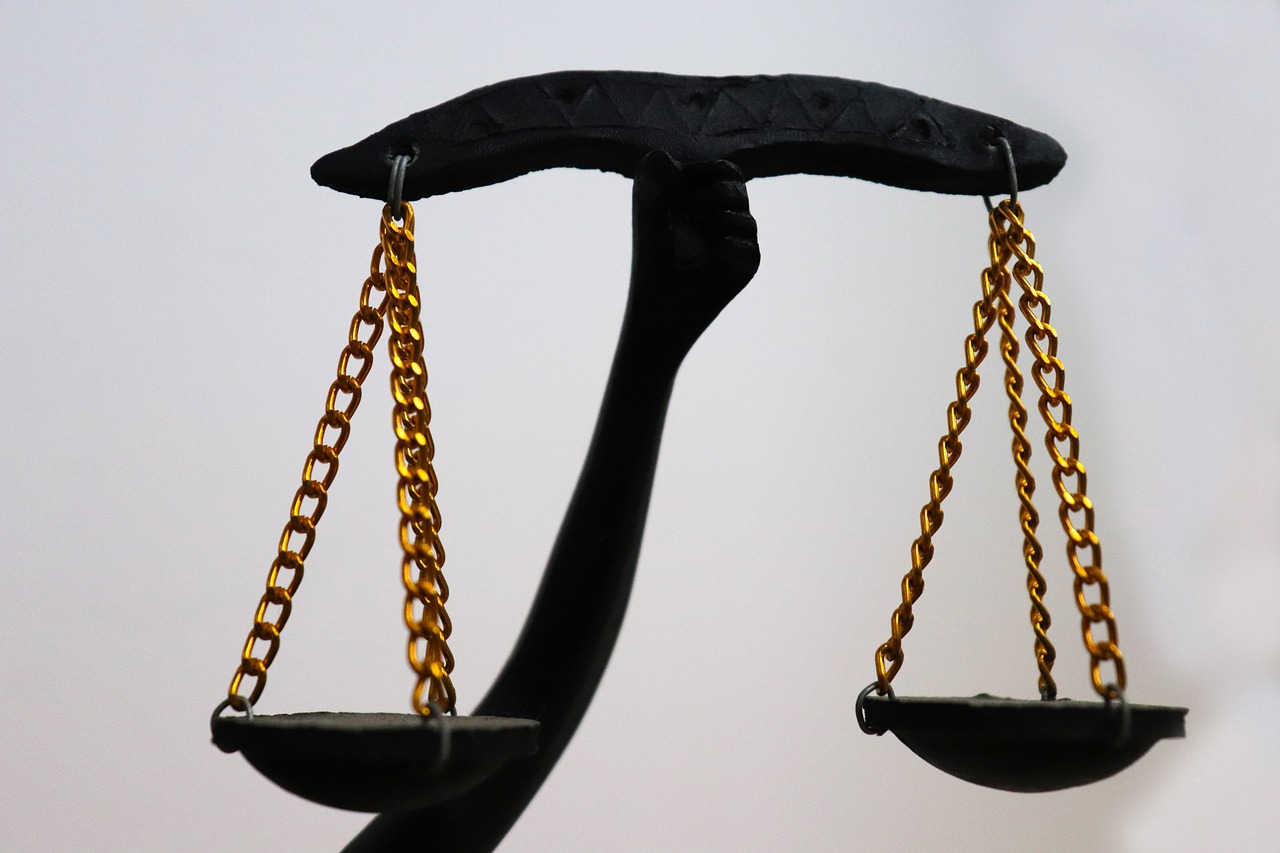
The Concept of Justice
Justice is a multifaceted concept that has evolved significantly over time, shaping societies and influencing human interactions. At its core, justice embodies the ideals of fairness, equality, and moral righteousness. These principles guide our understanding of what is right and wrong, providing a foundation upon which laws and societal norms are built. But what does justice truly mean, and how has its interpretation changed across different cultures and philosophical schools?
Historically, the concept of justice can be traced back to ancient civilizations, where it was often intertwined with religious beliefs and moral codes. The Greeks, for instance, viewed justice as a virtue essential for achieving a harmonious society. Philosophers like Plato and Aristotle pondered the nature of justice, debating whether it was an inherent quality of individuals or a social construct. Plato's idealism suggested that justice was about fulfilling one's role in society, while Aristotle emphasized the importance of virtue and moderation.
As we move through history, we see that justice takes on various forms. In the Enlightenment era, thinkers such as John Locke and Jean-Jacques Rousseau introduced ideas about natural rights and the social contract, further broadening the scope of justice. They argued that justice is not merely about retribution but also about protecting individual rights and promoting the common good. This shift laid the groundwork for modern democratic societies, where justice is often viewed through the lens of equal protection under the law.
In contemporary discourse, justice can be categorized into several interpretations, each reflecting different societal values and priorities. For example, distributive justice focuses on the fair allocation of resources, while retributive justice emphasizes punishment for wrongdoing. Additionally, restorative justice seeks to repair the harm caused by criminal behavior through reconciliation and healing, rather than simply punishing the offender.
Moreover, the concept of justice is not static; it is continually shaped by cultural, social, and political dynamics. In many societies today, justice is increasingly seen as a means to address systemic inequalities and injustices. Movements advocating for social justice highlight the need to consider marginalized voices and ensure that everyone has equal access to opportunities and resources. This evolving understanding of justice challenges traditional notions and calls for a more inclusive approach.
In summary, the concept of justice is a complex and dynamic idea that has undergone significant transformation throughout history. From ancient philosophies to modern interpretations, justice serves as a guiding principle for societal organization and governance. As we continue to grapple with issues of fairness and equality, understanding the diverse perspectives on justice becomes crucial in shaping our political and social landscapes.

Philosophical Theories of Justice
The concept of justice is not just a static idea; it is a vibrant tapestry woven from various philosophical threads. Each theory offers a unique lens through which we can examine justice, providing us with the tools to navigate the complex landscape of moral and ethical dilemmas in our societies. From ancient philosophers to modern thinkers, the quest for understanding justice has been a central theme in political philosophy.
Among the myriad of theories, three stand out prominently: utilitarianism, deontology, and virtue ethics. Each of these theories presents a distinct approach to defining what is just and how justice should be applied in political systems. Let's break these down further.
Utilitarianism is often summarized by the phrase "the greatest good for the greatest number." This theory, championed by philosophers like Jeremy Bentham and John Stuart Mill, suggests that actions are right if they promote overall happiness. However, this raises the question: at what cost does this happiness come? When policies favor the majority, do they inadvertently marginalize minority groups? This dilemma is at the heart of many contemporary debates about justice and equality.
On the other hand, deontological ethics, associated with Immanuel Kant, emphasizes the importance of duty and moral rules over the consequences of actions. According to this perspective, certain actions are inherently right or wrong, regardless of their outcomes. This theory insists that justice should be grounded in respect for individual rights, which can sometimes conflict with utilitarian principles. For instance, should a government sacrifice the rights of a few for the happiness of many? This tension between duties and consequences is a critical aspect of political discourse.
Lastly, we have virtue ethics, which shifts the focus from rules or consequences to the character of the individual. Rooted in the works of Aristotle, this theory posits that a just society is one where its citizens cultivate virtues such as honesty, courage, and compassion. The idea is that by fostering virtuous individuals, society as a whole will benefit. But how do we measure virtue, and who decides what constitutes a virtue? These questions challenge the practical application of virtue ethics in governance.
The interplay between these theories creates a rich dialogue about justice. For example, in a political context, a law that is utilitarian in nature might clash with deontological principles, leading to heated debates among lawmakers and citizens alike. Understanding these theories not only enhances our comprehension of justice but also equips us to engage in meaningful discussions about laws and societal norms.
In summary, the philosophical theories of justice provide essential frameworks for analyzing moral questions in politics. They invite us to consider the implications of our choices and the values we uphold as a society. As we continue to grapple with issues of fairness and equality, these theories remain relevant, guiding us in our pursuit of a just world.
- What is justice in philosophical terms? Justice is often viewed as a concept that encompasses fairness, equality, and moral righteousness, shaped by various philosophical theories.
- How does utilitarianism define justice? Utilitarianism defines justice as actions that promote the greatest happiness for the greatest number of people.
- What are the critiques of deontological ethics? Critics argue that deontological ethics can lead to rigid moral rules that may ignore the complexities of real-world situations.
- Why is virtue ethics important in discussions of justice? Virtue ethics emphasizes the character of individuals, suggesting that a just society is built on the virtues of its citizens.
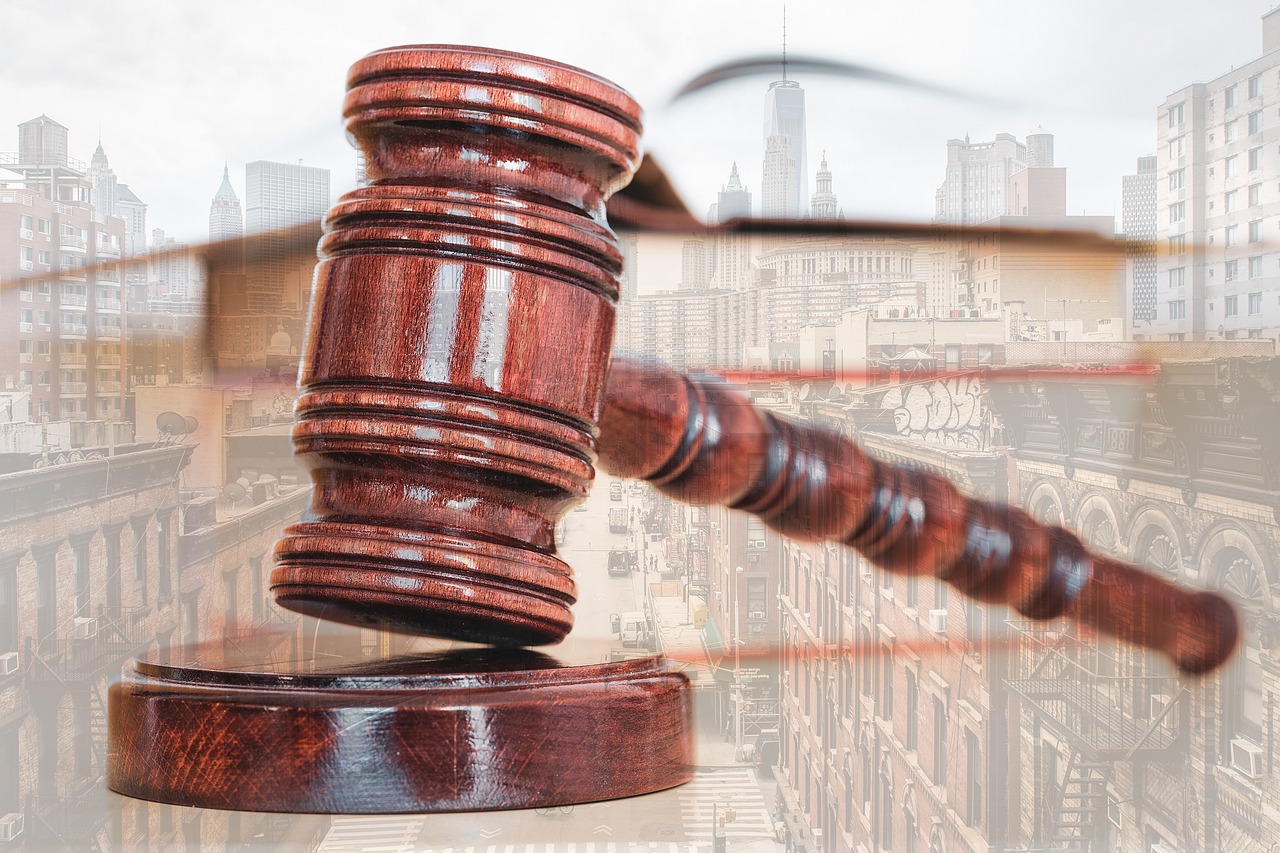
Utilitarianism and Justice
Utilitarianism is a philosophical doctrine that asserts that the best action is the one that maximizes overall happiness or utility. This principle has profound implications for justice, particularly in how laws and policies are crafted within political systems. Imagine a society where every decision is made with the sole aim of increasing happiness; it sounds ideal, right? However, the reality is a bit more complicated. While utilitarianism strives for the greater good, it often poses ethical dilemmas that challenge our understanding of justice.
One of the core tenets of utilitarianism is the idea that actions are justified if they lead to the greatest happiness for the greatest number. This can be a double-edged sword. For instance, consider a government deciding to implement a new policy that benefits a majority but may adversely affect a minority group. In such cases, the utilitarian framework might suggest that the policy is justified because it enhances the overall happiness of the larger population. However, this raises critical questions: Is it fair to sacrifice the well-being of a few for the happiness of many? Does justice not also require protecting the rights of the minority?
Utilitarianism's influence extends beyond ethical discussions and seeps into practical applications in governance and public welfare. Governments often employ utilitarian principles when making decisions about resource allocation, healthcare, and education. For example, when determining the budget for public services, a utilitarian approach would prioritize funding for programs that yield the highest benefits for the most people. This might involve analyzing data and projecting outcomes to ensure that investments lead to significant positive impacts on societal welfare.
However, this approach is not without its critics. Some argue that utilitarianism can lead to a form of "tyranny of the majority," where the rights and needs of minority groups are overlooked in favor of what is perceived to be the greater good. This concern highlights a fundamental tension in utilitarian thought: the balance between maximizing happiness and ensuring justice for all individuals, regardless of their societal standing. To illustrate this point, consider the following table that contrasts the benefits and drawbacks of utilitarianism in the context of justice:
| Benefits | Drawbacks |
|---|---|
| Promotes overall happiness | Can justify harm to minorities |
| Encourages pragmatic decision-making | May overlook individual rights |
| Focuses on measurable outcomes | Complexity in calculating utility |
As we navigate the complexities of justice in our increasingly diverse societies, the utilitarian approach serves as both a guide and a cautionary tale. It emphasizes the importance of considering the collective good while reminding us that true justice must also encompass the protection of individual rights. Therefore, when political leaders and policymakers engage with utilitarianism, they must do so with a keen awareness of its limitations and potential consequences.
Ultimately, the interplay between utilitarianism and justice invites us to reflect on our values and priorities as a society. Are we willing to sacrifice the happiness of a few for the benefit of many? Or can we find a way to ensure that justice is not just about maximizing happiness, but also about safeguarding the rights and dignity of every individual? These questions are at the heart of the ongoing discourse about justice and its political applications.
- What is utilitarianism? Utilitarianism is a moral philosophy that suggests that the best action is the one that maximizes overall happiness or utility.
- How does utilitarianism relate to justice? Utilitarianism influences justice by prioritizing actions that benefit the majority, but it can also lead to ethical dilemmas regarding the rights of minorities.
- What are the criticisms of utilitarianism? Critics argue that utilitarianism can justify harmful actions against minority groups and may overlook individual rights in the pursuit of collective happiness.
- Can utilitarian principles be applied in public policy? Yes, utilitarian principles are often used in public policy to allocate resources and implement programs that aim to maximize societal welfare.

Critiques of Utilitarianism
While utilitarianism is often hailed as a straightforward approach to ethics, it has drawn significant criticism from various quarters. One of the primary concerns is that it can lead to the justification of actions that are inherently harmful, particularly towards minority groups. For instance, if a policy benefits the majority but severely harms a small group, utilitarianism may deem it acceptable. This raises a profound ethical dilemma: can the ends truly justify the means?
Moreover, critics argue that utilitarianism oversimplifies complex moral landscapes. Life is not always black and white; sometimes, the right choice is not the one that maximizes happiness. Imagine a scenario where a decision could lead to greater overall happiness but at the expense of an individual's rights. This situation begs the question: is it ethical to sacrifice one for the many? This tension illustrates a fundamental flaw in utilitarian thought.
Another critique revolves around the measurement of happiness itself. How do we quantify happiness? Can we truly compare the happiness of one person to another? These questions highlight the subjective nature of happiness and the challenges it poses for utilitarian calculations. To add further complexity, the time factor comes into play; what may generate happiness today could lead to suffering tomorrow. Hence, critics argue that utilitarianism lacks a long-term perspective.
Additionally, the reliance on a quantitative approach can lead to a disregard for moral integrity. In a utilitarian framework, the moral worth of an action is judged solely by its outcomes. This perspective can diminish the importance of intentions and the moral weight of individual actions. For instance, consider a situation where a politician decides to implement a policy that benefits the majority but is aware that it will harm a minority. If the outcome is favorable for most, the politician may feel justified, yet this raises ethical questions about integrity and responsibility.
In light of these critiques, it's essential to consider alternative frameworks that could address the shortcomings of utilitarianism. Some propose integrating deontological principles, which emphasize duties and rights, into the discourse on justice. This could provide a more balanced approach that respects individual rights while still considering overall welfare.
In conclusion, while utilitarianism offers valuable insights into ethical decision-making, its limitations cannot be overlooked. The critiques it faces highlight the need for a more nuanced understanding of justice that balances the welfare of the majority with the rights of the minority. As we continue to navigate the complexities of governance and ethics, these discussions will remain crucial in shaping a fairer society.
- What is utilitarianism? Utilitarianism is an ethical theory that suggests the best action is the one that maximizes overall happiness or utility.
- What are the main critiques of utilitarianism? The main critiques include its potential to justify harmful actions against minorities, its oversimplification of moral dilemmas, and the challenges in measuring happiness.
- How does utilitarianism affect public policy? Utilitarian principles often guide policymakers to prioritize actions that benefit the majority, sometimes at the expense of minority rights.
- What are alternatives to utilitarianism? Alternatives include deontological ethics, which focuses on duties and rights, and virtue ethics, which emphasizes moral character.

Practical Applications of Utilitarianism
Utilitarianism, with its core belief in maximizing overall happiness, finds its way into various facets of governance and public policy. Imagine a world where every decision made by the government is aimed at producing the greatest good for the greatest number of people. Sounds ideal, right? However, the reality is that applying this philosophical framework can be both enlightening and challenging. Let's dive deeper into how utilitarianism shapes our political landscape.
One of the most significant areas where utilitarian principles are applied is in public health policy. For instance, during health crises, such as pandemics, governments often make decisions that prioritize the health of the majority, sometimes at the expense of individual rights. A classic example is the implementation of vaccination mandates. While these mandates can lead to increased immunity in the population, they can also raise ethical questions about personal freedom. The utilitarian perspective argues that the benefits of herd immunity far outweigh the drawbacks of individual choice.
Another practical application can be seen in economic policies. Governments frequently use cost-benefit analysis, a utilitarian tool, to evaluate the potential outcomes of projects. For instance, when considering the construction of a new highway, officials will assess the economic benefits—like reduced travel time and increased commerce—against the environmental costs, such as pollution and habitat destruction. This analysis helps in making informed decisions that ideally serve the public interest.
Utilitarianism also plays a crucial role in criminal justice reform. Policies aimed at reducing recidivism rates often draw from utilitarian principles. For example, rehabilitation programs for offenders are designed not only to prevent future crimes but also to reintegrate individuals into society, thus promoting overall societal happiness. By focusing on the long-term benefits of rehabilitation over punitive measures, utilitarianism advocates for a justice system that serves the greater good.
However, it's important to note that the application of utilitarianism is not without its pitfalls. Critics argue that it can lead to the neglect of minority rights, as the happiness of the majority may come at the expense of a few. This raises a critical question: how do we balance the needs of the many against the rights of the few? This dilemma is at the heart of ongoing debates in political philosophy and ethics.
In conclusion, while utilitarianism provides a valuable framework for evaluating policies and decisions, its practical applications require careful consideration of ethical implications. As we navigate the complexities of governance, the challenge remains: how do we maximize happiness without sacrificing justice? The answer may not be straightforward, but the discussion is certainly worth having.
- What is utilitarianism? Utilitarianism is a philosophical theory that suggests that the best action is the one that maximizes overall happiness or utility.
- How does utilitarianism apply to public policy? Utilitarianism influences public policy by guiding decisions that aim to produce the greatest good for the greatest number, often seen in health and economic policies.
- What are some criticisms of utilitarianism? Critics argue that utilitarianism can justify harmful actions against minorities and may overlook individual rights in favor of majority happiness.
- Can utilitarianism be applied to criminal justice? Yes, utilitarian principles are often applied in criminal justice reform, focusing on rehabilitation and reducing recidivism to benefit society as a whole.
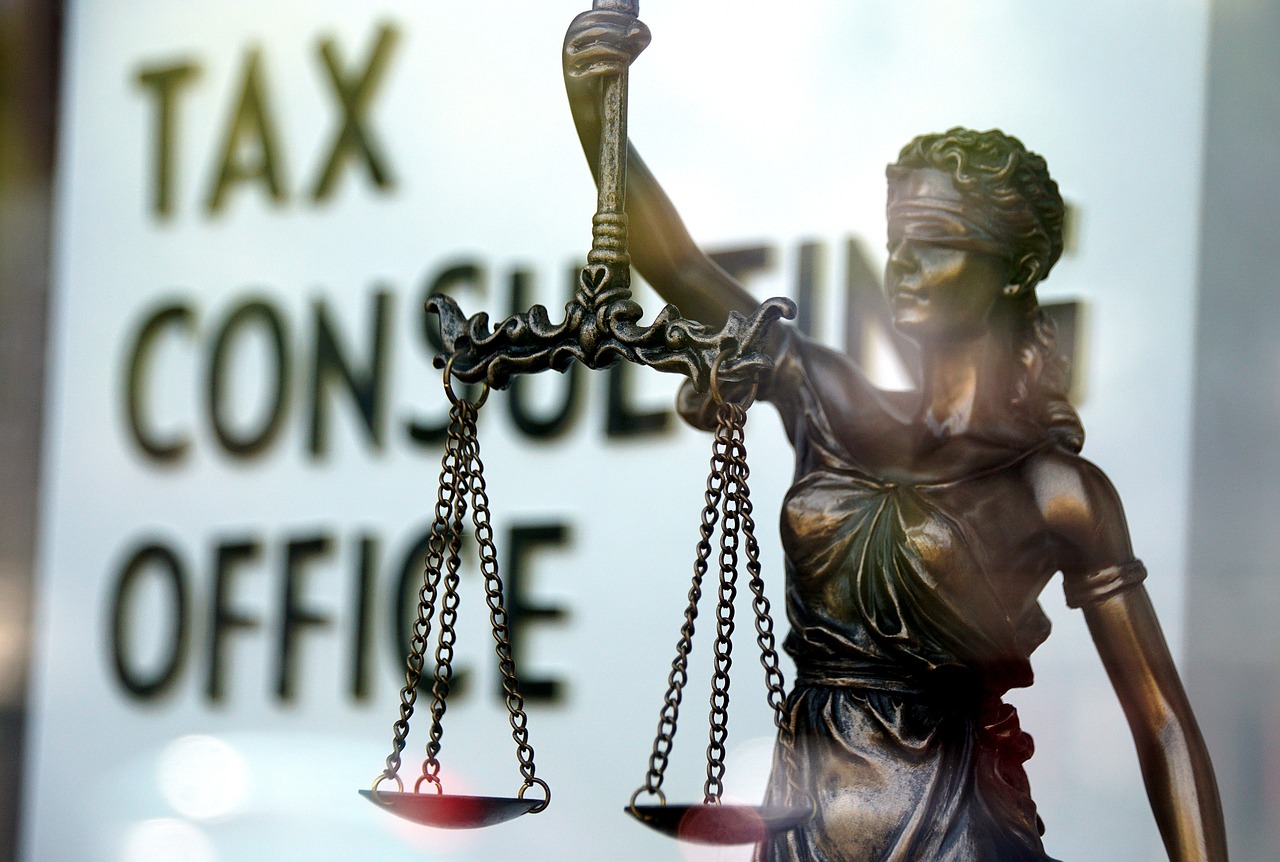
Deontological Perspectives on Justice
When we dive into , we step into a world where the focus shifts from the outcomes of actions to the actions themselves. This framework, primarily associated with the philosopher Immanuel Kant, emphasizes that certain actions are inherently right or wrong, regardless of their consequences. Imagine a world where the means justify the ends; deontology stands firmly against that notion, advocating instead for a moral compass that guides our actions based on duty and adherence to universal principles.
At its core, deontology posits that individuals have moral duties that must be fulfilled, and these duties are often articulated through rights. For instance, the right to life, liberty, and the pursuit of happiness are not just privileges; they are obligations that society must respect and protect. This perspective aligns closely with the legal frameworks we see in many democratic societies, where laws are created to uphold these rights, ensuring that individuals are treated with respect and dignity.
One striking aspect of deontological justice is its emphasis on the intrinsic value of individuals. Rather than viewing people as mere means to an end, deontology insists that every person has inherent worth. This principle is crucial in political systems, as it shapes policies that protect minority rights and ensure that laws are not merely tools of the majority. For example, consider a law that benefits the majority at the expense of a minority group; a deontological perspective would argue that such a law is unjust because it violates the rights of those individuals, regardless of the overall happiness it might generate.
Furthermore, deontological theories often lead to discussions about the moral responsibilities of individuals and governments. These responsibilities can manifest in various ways, such as:
- Upholding human rights
- Ensuring justice in legal proceedings
- Maintaining ethical standards in governance
These responsibilities are not just idealistic notions; they have real-world implications that can shape legislation and public policy. For instance, the establishment of laws against discrimination is a direct application of deontological principles, ensuring that every individual is treated fairly and justly, irrespective of their background.
However, deontology is not without its challenges. Critics argue that a strict adherence to duty can lead to moral dilemmas. For example, if following a duty to tell the truth would result in harm to someone, what should one do? This tension between duty and consequence highlights the complexities of applying deontological ethics in political contexts. Nevertheless, the strength of this approach lies in its unwavering commitment to uphold individual rights and moral duties, making it a vital perspective in the discourse on justice.
In summary, deontological perspectives on justice provide a robust framework for understanding our moral obligations within society. By prioritizing duties and rights over outcomes, this approach fosters a political environment where individuals are respected and valued. As we continue to explore the intricate relationship between justice and politics, the deontological lens will undoubtedly remain a cornerstone of ethical discussions.
- What is deontology? Deontology is an ethical theory that emphasizes the importance of duty and adherence to rules in determining the morality of actions.
- How does deontology apply to justice? Deontology focuses on the inherent rights of individuals, advocating for laws and policies that protect these rights regardless of the consequences.
- What are some criticisms of deontological ethics? Critics argue that strict adherence to duty can lead to moral dilemmas, particularly when duties conflict with each other or when following a duty results in harm.

Justice as Fairness
is a groundbreaking theory introduced by the renowned philosopher John Rawls. It fundamentally reshapes how we think about justice in a societal context. At its core, this theory proposes that a just society is one that ensures fairness for all its members, prioritizing the idea of social cooperation over individual gain. Rawls argues that principles of justice should be established under a veil of ignorance, where individuals are stripped of any knowledge of their personal circumstances. This ensures that the rules created are fair and impartial, as no one would want to create a system that disadvantages them.
Rawls outlines two key principles that serve as the foundation for his theory:
- The First Principle: Each person is to have an equal right to the most extensive basic liberties compatible with similar liberties for others. This principle emphasizes the importance of fundamental freedoms such as speech, assembly, and the right to vote.
- The Second Principle: Social and economic inequalities are to be arranged so that they are both to the greatest benefit of the least advantaged and attached to positions and offices open to all under conditions of fair equality of opportunity. This principle acknowledges that while inequalities may exist, they should benefit everyone, particularly those who are less fortunate.
These principles work in tandem to create a framework for equitable governance, ensuring that every individual has a fair chance to succeed in society. The notion of fair equality of opportunity is particularly significant, as it challenges the traditional views that often justify inequality based on natural talents or social status. Instead, Rawls emphasizes that society should actively work to level the playing field, providing everyone with the resources and opportunities they need to thrive.
Moreover, Rawls' theory has profound implications for public policy. By advocating for a system that benefits the least advantaged, policymakers are encouraged to develop programs that address poverty, education, and healthcare disparities. This approach not only fosters a sense of community but also promotes social stability, as individuals feel valued and supported within their society.
However, Rawls' theory is not without its critiques. Some argue that his principles are too idealistic and may not account for the complexities of real-world politics. Others suggest that the focus on the least advantaged could inadvertently create a dependency on welfare systems, rather than empowering individuals to improve their circumstances. Despite these critiques, Rawls' vision of justice as fairness continues to influence contemporary discussions on social justice and political philosophy.
In conclusion, remains a pivotal concept in understanding how we can create a more equitable society. By prioritizing fairness and equality, we challenge the status quo and strive for a system that respects the dignity of every individual. As we continue to grapple with issues of justice and fairness in our own societies, Rawls' framework serves as a vital reference point for policymakers, philosophers, and citizens alike.
- What is the main idea of Justice as Fairness?
Justice as Fairness is a theory proposed by John Rawls that emphasizes fairness and equality in societal cooperation. - What are the two principles of justice according to Rawls?
The two principles are: 1) Equal basic liberties for all, and 2) Social and economic inequalities should benefit the least advantaged. - How does Justice as Fairness impact public policy?
It encourages the development of policies that address inequalities and support the disadvantaged, promoting a more equitable society. - What are some critiques of Rawls' theory?
Critiques include its idealism and potential to create dependency on welfare systems rather than empowering individuals.
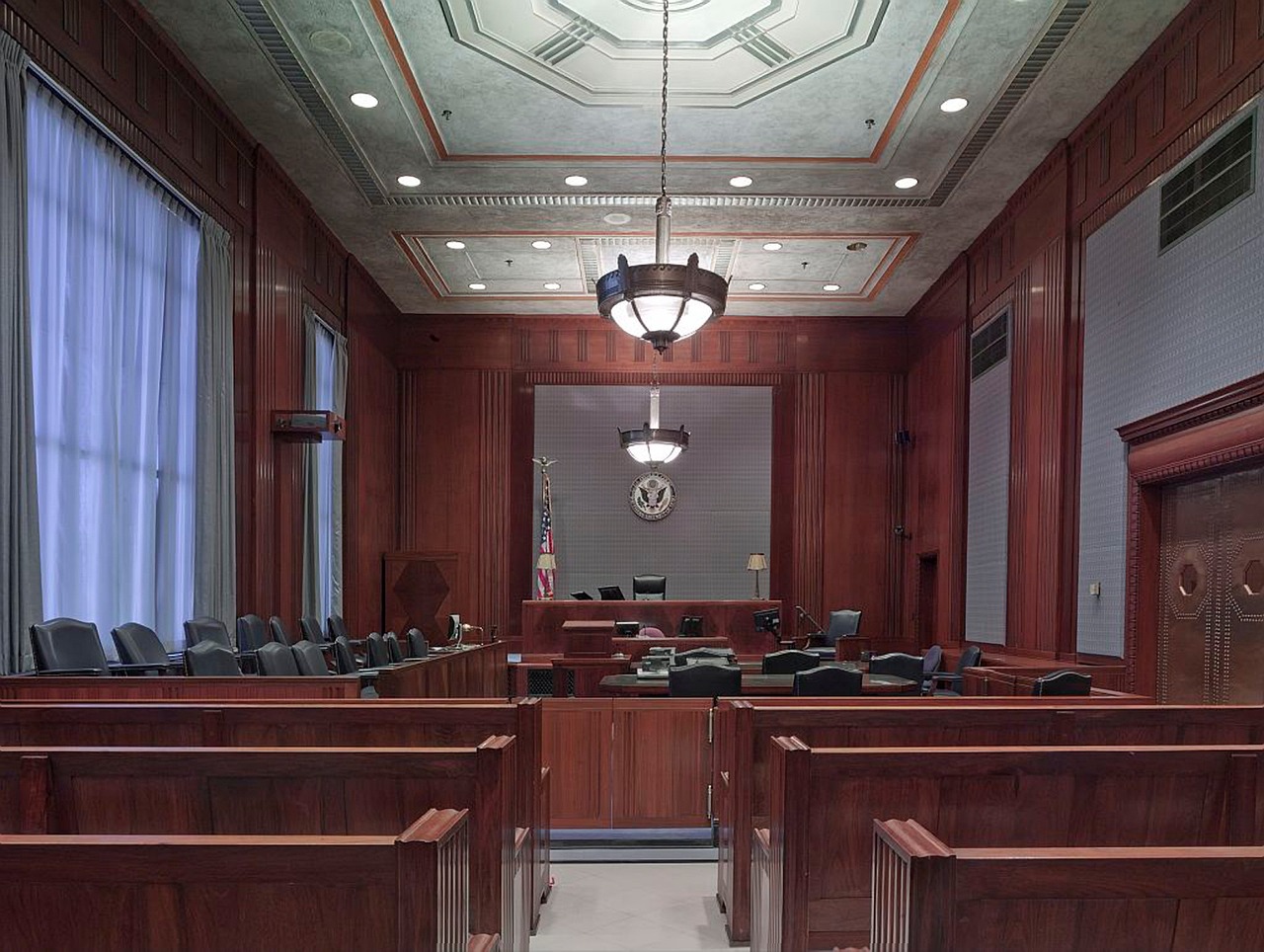
Rawls' Two Principles of Justice
John Rawls, a prominent 20th-century philosopher, introduced a groundbreaking framework for understanding justice through his theory known as "justice as fairness." At the heart of Rawls' philosophy are two fundamental principles that aim to ensure a fair distribution of rights and opportunities within society. These principles are not just abstract ideas; they serve as a guide for creating a just society where everyone has a fair shot at success and well-being.
The first principle emphasizes the importance of basic liberties. According to Rawls, every individual should have equal access to fundamental rights, such as freedom of speech, the right to vote, and the freedom of conscience. These liberties are essential for individuals to pursue their own conception of the good life. Imagine living in a society where your voice matters equally, where you can express your thoughts without fear of repression—this is the essence of Rawls' first principle.
The second principle addresses social and economic inequalities. Rawls argues that such inequalities are permissible only if they benefit the least advantaged members of society. This principle is often summarized by the phrase "the difference principle." It challenges the notion that wealth and power should be concentrated in the hands of a few. Instead, it encourages systems that uplift the most vulnerable, ensuring that progress does not come at the expense of those who are already struggling. For instance, policies that promote accessible education and healthcare can be seen as practical applications of this principle, as they aim to level the playing field for all individuals.
To illustrate Rawls' two principles, consider the following table:
| Principle | Description | Implications for Society |
|---|---|---|
| First Principle | Equal basic liberties for all individuals | Ensures that everyone has the freedom to pursue their own goals without oppression |
| Second Principle | Social and economic inequalities should benefit the least advantaged | Promotes policies that uplift the marginalized and ensure equitable opportunities |
Rawls' principles are not merely theoretical constructs; they have profound implications for political thought and action. By advocating for a society that prioritizes both basic liberties and the welfare of the least advantaged, Rawls challenges us to rethink our approaches to governance and social justice. His ideas resonate in contemporary discussions about wealth distribution, healthcare access, and educational equity, urging policymakers to create systems that reflect these values.
In conclusion, Rawls' two principles of justice provide a robust framework for evaluating the fairness of our political and social institutions. They remind us that true justice is not just about laws and regulations but about creating an environment where every individual can thrive. As we navigate complex societal challenges, Rawls' vision continues to inspire and provoke critical discussions about what it means to live in a just society.
- What are Rawls' two principles of justice? Rawls' two principles focus on ensuring equal basic liberties for all individuals and allowing social and economic inequalities only if they benefit the least advantaged.
- How do Rawls' principles apply to modern society? These principles guide discussions on policies related to healthcare, education, and wealth distribution, emphasizing the importance of uplifting marginalized communities.
- Why is justice as fairness important? It offers a framework for evaluating the fairness of political systems and encourages a society that prioritizes both individual rights and the welfare of all citizens.
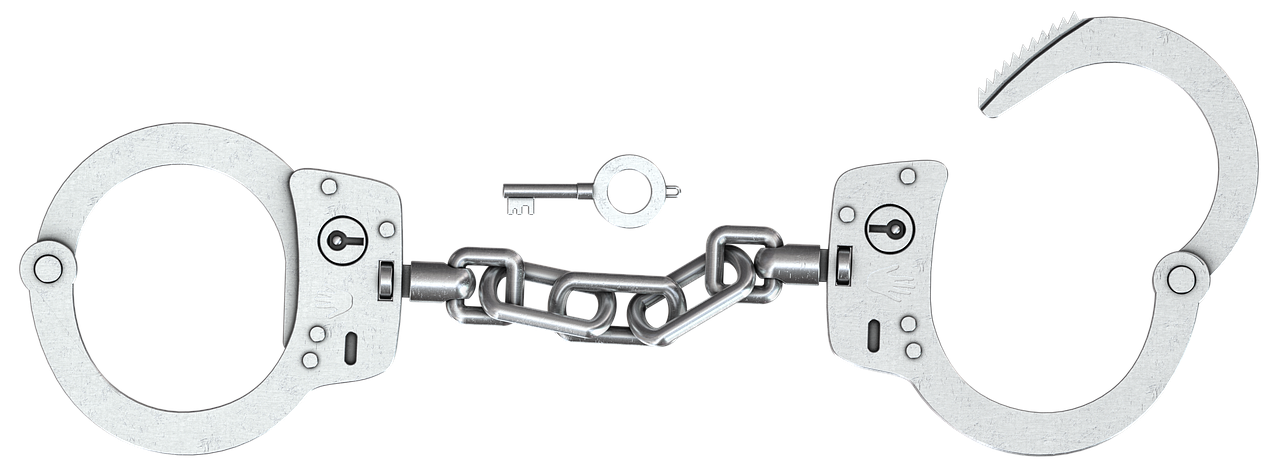
Critiques and Alternatives to Rawls' Theory
John Rawls' theory of justice as fairness has sparked extensive debate in philosophical and political circles. While his ideas have laid a foundation for discussions on equality and social justice, they are not without their critics. One major critique is that Rawls' principles may be too idealistic, lacking practical applicability in real-world scenarios. Critics argue that his notion of the "original position" and the "veil of ignorance" assumes a level of rationality and impartiality that may not exist in practice. In a world rife with biases and inequalities, can we truly expect individuals to set aside their personal interests and prejudices to establish fair principles of justice?
Moreover, some scholars contend that Rawls' framework inadequately addresses the complexities of cultural diversity and pluralism. His theory primarily reflects Western liberal values, which may not resonate with or be applicable to non-Western societies. This raises the question: Does justice as fairness truly encompass a global perspective, or does it inadvertently marginalize alternative conceptions of justice?
Another significant critique is that Rawls' focus on distributive justice—how goods and resources are distributed—overemphasizes material equality. Critics argue that this perspective overlooks the importance of recognizing individual differences and the diverse needs of various groups. For instance, while Rawls advocates for the least advantaged, what about those whose needs are not solely economic? This critique leads us to consider alternatives that might provide a more holistic approach to justice.
Several alternatives have emerged in response to Rawls' theory, each offering unique insights into the nature of justice. One such alternative is the Capabilities Approach, developed by economist Amartya Sen and philosopher Martha Nussbaum. This framework shifts the focus from resource distribution to individuals' capabilities and opportunities to achieve well-being. In this view, justice is about enabling people to lead fulfilling lives, rather than merely ensuring equal access to resources. It emphasizes the importance of personal agency and the diverse factors that contribute to an individual's quality of life.
Another alternative is the Communitarian Perspective, which emphasizes the role of community values and social contexts in shaping notions of justice. Communitarians argue that Rawls' theory is overly individualistic and fails to account for the significance of social bonds and cultural traditions. They advocate for a justice framework that recognizes the interconnectedness of individuals within their communities and the importance of collective well-being.
In addition to these alternatives, some scholars propose a Radical Justice approach, which critiques the very structures of power and privilege that underpin societal inequalities. This perspective calls for transformative changes to existing systems rather than merely reforming them. It emphasizes the need for a justice framework that actively dismantles oppressive structures and promotes genuine equity.
Ultimately, the critiques and alternatives to Rawls' theory of justice highlight the ongoing evolution of our understanding of justice in political contexts. As societies continue to grapple with complex issues of inequality, diversity, and human rights, the discourse surrounding justice must remain dynamic and inclusive. Engaging with these critiques and exploring alternative frameworks not only enriches our understanding of justice but also informs the development of more equitable policies and practices.
- What is Rawls' theory of justice? Rawls' theory proposes that justice should be understood as fairness, emphasizing equality and the protection of the least advantaged in society.
- What are the main critiques of Rawls' theory? Critics argue that Rawls' theory is idealistic, culturally biased, and overly focused on material equality, neglecting the complexities of individual needs and community values.
- What are some alternatives to Rawls' theory? Alternatives include the Capabilities Approach, Communitarian Perspective, and Radical Justice, each offering different insights into the nature of justice and equity.
Frequently Asked Questions
- What is the definition of justice?
Justice is a complex idea that revolves around fairness, equality, and moral righteousness. It has evolved through history and varies across different cultures and philosophical traditions, often reflecting the values and norms of society.
- What are the main philosophical theories of justice?
There are several key theories of justice, including utilitarianism, deontology, and virtue ethics. Each of these frameworks offers a unique perspective on what justice means and how it should be applied in political systems and societal norms.
- How does utilitarianism relate to justice?
Utilitarianism suggests that the best actions are those that maximize overall happiness. This principle can significantly influence policies and ethical decisions in governance, often prioritizing the greatest good for the greatest number.
- What are some critiques of utilitarianism?
Critics argue that utilitarianism can justify harmful actions against minority groups if it leads to a greater overall benefit. This raises important ethical dilemmas about the balance between individual rights and collective happiness.
- What is deontological ethics?
Deontological ethics focuses on the importance of duties and rights rather than the consequences of actions. This approach emphasizes moral responsibilities and can shape legal frameworks within political systems.
- What is John Rawls' theory of justice as fairness?
John Rawls proposed a theory that emphasizes equality and justice in social cooperation. His framework includes two principles that prioritize basic liberties and address social and economic inequalities, guiding equitable governance.
- What are Rawls' two principles of justice?
Rawls' two principles of justice are: first, each person should have equal basic liberties; second, social and economic inequalities should be arranged to benefit the least advantaged members of society. These principles aim to create a fair and just society.
- What are some critiques of Rawls' theory?
While influential, Rawls' theory has faced critiques regarding its practicality and inclusivity. Some argue that it may not adequately address the complexities of real-world justice issues, prompting the exploration of alternative frameworks.


